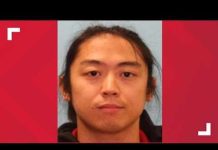
The admission of guilt by Yakuza leader Takeshi Ebisawa in a nuclear trafficking conspiracy sends ripples through global security circles, highlighting the reach and impact of organized crime.
At a Glance
- Ebisawa pleaded guilty to conspiring to traffic nuclear materials and narcotics.
- His arrest was part of a DEA sting operation using undercover agents.
- The case illustrates international law enforcement cooperation.
- Ebisawa faces a minimum of 10 years in prison, with sentencing in April 2025.
- The operation involved drugs and illegal arms trade aimed at enhancing Iran’s nuclear capabilities.
Yakuza Leader’s Guilty Plea
Takeshi Ebisawa, a high-ranking leader within Japan’s Yakuza syndicate, admitted to conspiring to traffic nuclear materials. Ebisawa’s plea is linked to plans to supply uranium and plutonium for Iran’s nuclear weapons program. This confession emerged from a DEA-led sting operation during which Ebisawa unwittingly coordinated with DEA sources posing as Iranian officials. He now faces significant legal consequences, with a minimum 10-year imprisonment potentially extending much longer.
Operatives behind Ebisawa’s network sought to exchange heroin and methamphetamine for heavy weapons. This convergence of narcotics and arms trafficking posed a substantial threat to international peace. International cooperation was pivotal, with law enforcement from Indonesia, Japan, and Thailand contributing to the operation. The DEA underscored this case as a testament to their “unparalleled ability to dismantle the world’s most dangerous criminal networks.”
Japanese Yakuza Leader Pleads Guilty to Nuclear Materials Trafficking, Narcotics, and Weapons Chargeshttps://t.co/fXF7hSvoCN
— National Security Division, U.S. Dept of Justice (@DOJNatSec) January 8, 2025
Multinational Collaborative Efforts
Ebisawa’s arrest in April 2022 followed intricate detective work involving cooperation across borders. The operation unveiled shocking lengths to which organized crime reaches, exposing nuclear materials originating from Myanmar. U.S. lab tests confirmed these materials included uranium and weapons-grade plutonium. Assistant Attorney General Matthew G. Olsen stated, “Today’s plea should serve as a stark reminder to those who imperil our national security.” Such funding aimed to further destabilize regions affected by armed conflicts.
Nuclear material sales mentioned in the case included Ebisawa’s purported access, with photographic evidence validating such claims. Plans even extended to the purchase of U.S. surface-to-air missiles for Myanmar insurgents, blending crime with geopolitical maneuvering. Ebisawa’s network had broader ties to drug trafficking in the U.S., indicating extensive international linkages seeking to destabilize global safety.
Broadening the Scope
Ebisawa’s guilty plea, part of broader investigations, marked a significant blow against transnational crime organizations. His case illustrates why collaborative efforts against threats involving trafficking of nuclear materials remain indispensable to protect global peace. Efforts to curtail Yakuza activities leveraged international jurisdictions to take effective action and to defuse potential crises posed by these formidable criminal enterprises.
Ebisawa’s elaborate network’s dissolution underscores why the global law enforcement community must tackle such dangers head-on with vigilance and shared resources, reinforcing security against threats posed by figures like him.
Sources:
- Japanese crime leader pleads guilty to conspiring to sell nuclear materials to Iran
- Japanese Yakuza Leader Pleads Guilty to Nuclear Materials Trafficking, Narcotics, and Weapons Charges
- Accused leader of Japan crime syndicate pleads guilty to attempted trafficking of nuclear materials from Myanmar




